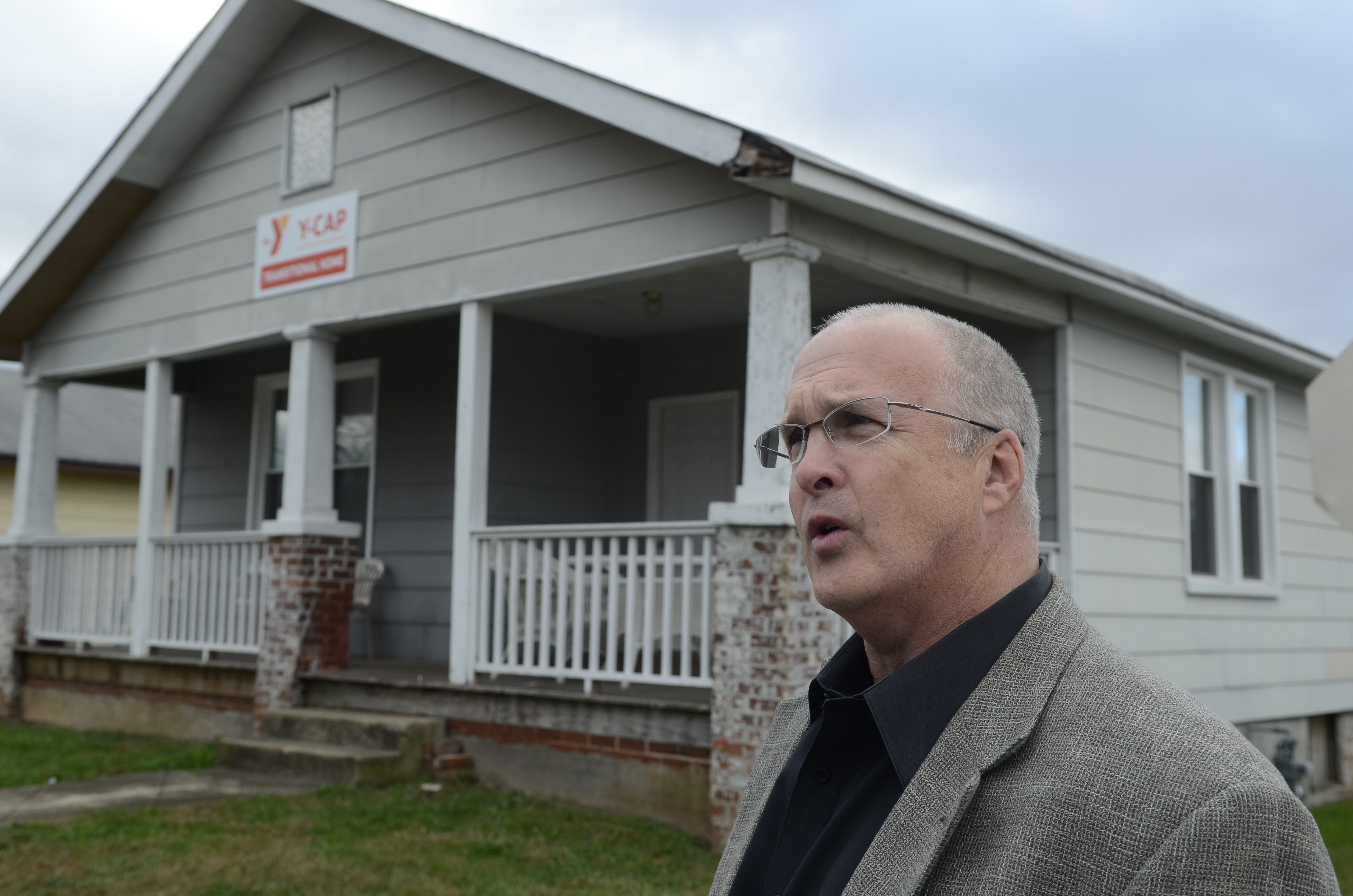YMCA housing role returns: Transitional home provides helping hand for men in need
Monday, November 11, 2013
Roger Hilley said it was hard to call the YMCA's Joe Smith and admit that he had no place else to go, but the high school senior said Smith was his brightest path to a better life. Smith let Hilley escape his environment of drugs and instability to sleep on the couch in his home for three months.
Meanwhile, Smith and YMCA officials prepared the organization's first transitional house for men.
The house opened this year in the 1000 block of 16th Street with space for six men. Hilley, a 19-year-old senior at Hamilton County High School, is one of them.
"It showed me discipline and guidance. It helped me in a great way," said Hilley.
It's the first time the YMCA has provided housing for men in more than a decade, said Rick Madison, the Y's chief operating officer. He and Smith said the YMCA started the housing program because of the need.
"We don't have to go across the world to do ministry. The need is right here," said Smith, the transitional house manager and director of the YMCA Community Action Program known as Y-CAP.
Smith said he has seen the need.
There have been times when he had to make sure he locked the YMCA van when he drove it to work because if he left it there with the door unlocked overnight, someone would be asleep inside when he arrived the next morning.
The men's transitional house is the only house operated in Chattanooga by the YMCA. But 30 years ago providing housing was commonplace among YMCAs in Chattanooga and across the country, said Madison.
The YMCA first provided housing in the 1860s, about 20 years after the first Y began in 1844. The first known YMCA dormitory was in Chicago in 1867. Between 1922 and 1940, YMCA housing units increased from 55,000 rooms to more than 100,000, more than any hotel chain in the country at that time, according to the Y's website at www.ymca.net.
The goal was to provide safe and affordable housing for men moving from rural areas to cities, according to the website.
The difference with housing then compared to now is that in the 1970s and '80s most YMCAs across the country just provided affordable housing. There was no programming with the housing until the 1990s. And almost as fast as it started, housing and programming had ended with most YMCAs by 2000, said Madison.
This time the self-improvement programs at the Y that come with housing are just as important as the housing, said Madison.
Men are expected to live in the house for about a year. The programs are intended to help men prepare themselves to be self-sufficient. The men have a life coach who serves as an accountability partner, said Smith. There is also group counseling related to drugs, alcohol, problem-solving skills and anger management.
Any man age 18 or older can come. The group has included convicted felons, men who aged out of the foster care system and men who just had no place else to go. Smith gives them his personal cellphone number, helps them get jobs if needed and charges them about $30 a week for rent.
Tenants who live in the house for one year and complete the program receive a government-subsidized voucher for use in renting another residence. They also have the recommendation of Smith and Y officials when applying for jobs.
A Y-CAP volunteer purchased the men's home for $10,000. Y officials renovated the building, and it opened in January. In October, it became one of nine projects to which the Chattanooga Housing Authority awarded vouchers to house special needs communities like people aging out of foster care or those coming out of drug rehabilitation programs.
Because of the vouchers, people like Hilley can go to school and complete his education without worry about where they're going to live, said Madison.
Hilley isn't the only student who slept on a sofa while the transition house was being prepared. The couch in Smith's office was home to a UTC student, Tae Johnson, for six months before Johnson moved into the transitional housing and went on to graduate college and get a job teaching special education in Atlanta, said Smith.
"We just love on them," he said. "At some point people who are contributing members of society have an adult invest in them, love them, kick them in the butt when needed and hold them accountable."
Contact staff writer Yolanda Putman at yputman@timesfreepress.com or 423-757-6431.

